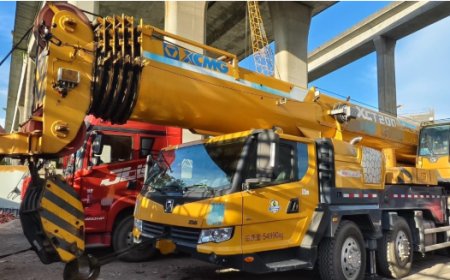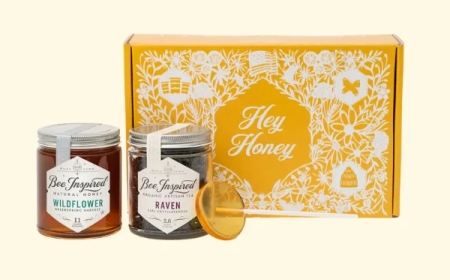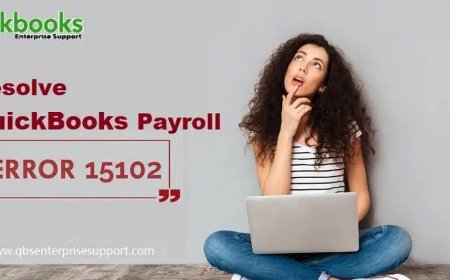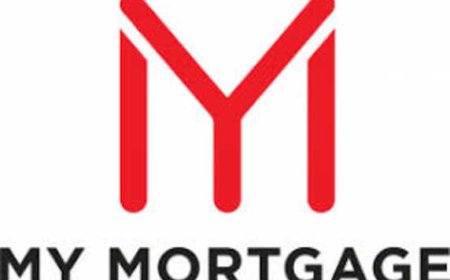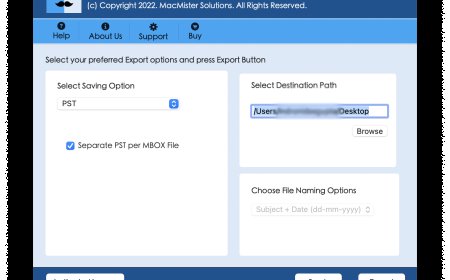How to Book a Stand-Up Comedy Workshop
How to Book a Stand-Up Comedy Workshop Stand-up comedy is more than just telling jokes—it’s an art form that demands timing, authenticity, and courage. Whether you’re an aspiring comedian looking to step onto the stage for the first time, a professional seeking to refine your material, or someone curious about the craft, booking a stand-up comedy workshop can be a transformative experience. These
How to Book a Stand-Up Comedy Workshop
Stand-up comedy is more than just telling jokes—it’s an art form that demands timing, authenticity, and courage. Whether you’re an aspiring comedian looking to step onto the stage for the first time, a professional seeking to refine your material, or someone curious about the craft, booking a stand-up comedy workshop can be a transformative experience. These workshops offer structured training, live feedback, performance opportunities, and access to a community of like-minded individuals. But unlike booking a movie ticket or a yoga class, finding and securing a spot in a quality comedy workshop requires research, strategy, and timing. This guide walks you through every step of the process, from identifying the right program to following up after registration, ensuring you make the most of your investment in comedic growth.
Comedy workshops vary widely in format, duration, cost, and instructor quality. Some are intensive week-long boot camps; others are weekly 8-week courses. Some focus on writing, others on stage presence or audience reading. Knowing how to navigate this landscape is critical to avoiding scams, wasted time, or underwhelming experiences. This tutorial will equip you with the knowledge to identify reputable programs, understand what to expect, and secure your place in a workshop that aligns with your goals.
Step-by-Step Guide
Step 1: Define Your Goals
Before you begin searching for a workshop, ask yourself why you want to attend one. Are you looking to write your first five-minute set? Do you want to overcome stage fright? Are you aiming to perform professionally or simply explore creativity in a supportive environment? Your goal will determine the type of workshop you should pursue.
For beginners, look for “Intro to Stand-Up” or “Comedy 101” courses. These typically cover joke structure, finding your voice, and performing in front of a small audience. Intermediate performers might seek “Material Development” or “Stagecraft” workshops that focus on refining delivery, testing new material, and building a longer set. Advanced comedians often benefit from “Workshops with Industry Pros,” which may include networking opportunities and feedback from bookers or producers.
Be honest about your current skill level. Jumping into an advanced class without foundational experience can be discouraging. Conversely, staying in beginner classes too long may stall your progress. Clarity on your objectives will help you filter options and avoid mismatched programs.
Step 2: Research Reputable Providers
Not all comedy workshops are created equal. Some are run by passionate amateurs; others are led by seasoned professionals with national exposure. Start by identifying well-known comedy schools and independent instructors with proven track records.
Look for programs affiliated with established comedy venues—such as The Comedy Store, Gotham Comedy Club, or The Second City. These institutions often offer workshops taught by current or former performers who have booked national tours or appeared on television. Independent instructors with YouTube channels, podcast appearances, or credits on platforms like Netflix or HBO are also strong candidates.
Use search terms like “best stand-up comedy workshops near me,” “professional stand-up comedy classes [your city],” or “online stand-up comedy course for beginners.” Cross-reference results with reviews on Google, Yelp, and Reddit communities like r/comedy or r/standup. Pay attention to patterns: Are multiple students mentioning the same instructor’s effectiveness? Do people consistently mention improvement in their sets after attending?
Avoid programs that promise “fame in 8 weeks” or guarantee bookings at major clubs. Comedy success is earned over time through consistent performance and feedback—not through marketing hype.
Step 3: Evaluate Workshop Structure and Format
Once you’ve shortlisted a few options, examine the curriculum closely. A high-quality workshop should include:
- Weekly writing exercises
- Live performance opportunities (even if small)
- Constructive peer and instructor feedback
- Video recordings of performances for self-review
- Discussion of comedic theory (e.g., misdirection, callback, premise)
Be wary of workshops that are purely lecture-based with no stage time. Comedy is a performance art—you must do it to learn it. The best programs follow a “learn, write, perform, refine” cycle.
Also consider format: in-person, hybrid, or fully online. In-person workshops offer the most authentic experience, as you learn to read live audiences and handle the energy of a room. Online workshops can be excellent alternatives if you live in an area without a vibrant comedy scene. Look for platforms that use Zoom with breakout rooms, live audience participation, and recorded feedback sessions.
Step 4: Check Instructor Credentials
The quality of instruction is often the biggest differentiator between a mediocre and a life-changing workshop. Research your potential instructors. Visit their websites, watch their stand-up sets on YouTube, and read interviews. Have they performed at major festivals like Just for Laughs or SXSW? Have they written for TV shows or opened for well-known comedians?
Don’t be swayed by charisma alone. A great performer isn’t always a great teacher. Look for instructors who have a history of mentoring others. Ask if they’ve had students go on to perform professionally or win comedy contests. Some instructors even list former students’ accomplishments on their bios—a strong indicator of their teaching effectiveness.
If possible, attend a free introductory session or open mic night hosted by the program. This gives you a firsthand sense of the instructor’s teaching style, classroom energy, and the overall vibe of the group.
Step 5: Review Cost, Schedule, and Duration
Workshop pricing can range from $50 for a single seminar to $1,500 for an 8-week intensive. While cost doesn’t always equal quality, extremely low prices may indicate a lack of resources or professional instructors. Conversely, exorbitant fees without clear deliverables should raise red flags.
Ask for a detailed breakdown: Does the fee include materials? Video recordings? Access to a private online community? Are there additional costs for venue rentals or guest speakers?
Time commitment matters too. A 6-week course meeting once a week for 2 hours is very different from a weekend intensive. Consider your schedule realistically. Can you commit to writing new material each week? Do you have time to rehearse before each performance night? Choose a format that fits your life—not the other way around.
Step 6: Register Early and Confirm Details
Popular workshops fill up quickly—sometimes weeks or months in advance. Once you’ve selected a program, don’t delay registration. Many programs cap class sizes at 12–16 students to ensure personalized attention. Missing out means waiting months for the next cycle.
When registering, pay attention to the confirmation process. Reputable programs send a welcome email with a syllabus, instructor bio, schedule, and pre-work assignments (like submitting a joke or recording a 30-second opener). If you receive no communication after payment, follow up immediately.
Save all receipts and correspondence. In case of cancellations or rescheduling, having documentation will help you navigate any issues.
Step 7: Prepare Before the First Session
Don’t walk into your first class empty-handed. Even if the workshop claims “no experience necessary,” coming prepared shows commitment and helps you get more out of the experience.
Start by writing down 3–5 personal observations or funny moments from your life. These can become the seed of your first joke. Don’t worry about polish—just capture the truth. The best comedy comes from authenticity.
Watch 3–5 sets from comedians you admire. Pay attention to how they structure their bits, how they pause, how they react to silence. Take notes on what works and what doesn’t.
Finally, mentally prepare for vulnerability. Stand-up forces you to expose parts of yourself. The first time you perform, you may feel awkward or embarrassed. That’s normal. The best comedians all started there.
Best Practices
Practice Consistently, Even Outside Class
Comedy is a muscle. If you only work on it during class, progress will be slow. Dedicate 15–20 minutes daily to writing or reviewing material. Keep a notebook or voice memo app handy to capture ideas as they come—whether you’re on the subway, in the shower, or walking the dog.
Try writing one joke a day, even if it’s terrible. The act of daily creation builds confidence and trains your brain to think comedically. Over time, you’ll notice patterns in what makes you laugh—and why.
Seek Feedback from Multiple Sources
Don’t rely solely on your instructor’s critique. After each performance, ask fellow students for honest feedback. Use the “comedy sandwich” method: start with something positive, then suggest one area for improvement, then end with encouragement.
Record every set—audio or video. Watch it back critically. Notice where you rush, where you lose energy, where the audience doesn’t react. This self-review is invaluable.
Perform Outside the Workshop
Once you’ve written your first five minutes, seek open mics. Most cities have weekly open mic nights at bars, cafes, or comedy clubs. These are low-pressure environments where you can test material without judgment.
Don’t wait until you feel “ready.” The word “ready” doesn’t exist in stand-up. You get better by doing. Even if your set bombs, you’ve gained experience. Every comedian has had nights where the audience didn’t laugh. It’s part of the process.
Build Relationships, Not Just a Set
Comedy is a community. The people you meet in workshop are potential collaborators, co-writers, or future booking contacts. Be supportive. Show up for others’ performances. Offer genuine compliments. Ask thoughtful questions.
Follow up with classmates after class. Create a group chat. Share resources. Organize informal writing sessions. The connections you make may lead to future gigs, writing partners, or lifelong friendships.
Track Your Progress
Keep a comedy journal. After each class and open mic, note:
- What material worked?
- What got silence?
- How did the audience react?
- What did you learn?
Over time, you’ll see patterns. Maybe your observational jokes land better than political ones. Maybe you’re stronger at storytelling than one-liners. This data helps you refine your style.
Stay Humble and Keep Learning
Even the most successful comedians attend workshops. There’s always room to grow. After completing one program, don’t stop. Look for advanced courses, writing retreats, or improv classes. Study different styles—absurdist, dark, observational, character-based. The more tools you have, the more versatile you become.
Tools and Resources
Recommended Online Platforms
For those unable to attend in-person classes, these platforms offer high-quality, structured comedy training:
- Comedy Dynamics – Offers online courses with industry professionals, including live Q&As and performance critiques.
- Udemy: Stand-Up Comedy for Beginners – A self-paced course with video lessons, writing prompts, and performance assignments.
- The Comedy Cellar Online – Hosts virtual workshops led by regular performers from the iconic New York club.
- Comedy Bang! Bang! Academy – Focused on improvisation and character work, useful for comedians who want to expand beyond traditional stand-up.
Writing and Organization Tools
Effective writing is the backbone of stand-up. Use these tools to organize your material:
- Google Docs or Notion – Create a “Joke Bank” with categories: Observational, Personal, Political, Callbacks, etc.
- Evernote – Capture ideas on the go with voice notes or text snippets.
- Comedy Timer App – Helps you time your sets to stay within limits (usually 3–5 minutes for open mics).
- Google Sheets – Track your performance stats: date, venue, material tested, audience reaction (1–5 scale), notes.
Listening and Learning Resources
Study the greats. Here are essential comedy specials and podcasts:
- Specials: Bo Burnham’s “Inside,” Ali Wong’s “Baby Cobra,” John Mulaney’s “New in Town,” Hasan Minhaj’s “Homecoming King,” Michelle Wolf’s “Nice Lady.”
- Podcasts: “The Joe Rogan Experience” (for long-form storytelling), “Comedy Bang! Bang!” (for absurd humor), “You Made It Weird with Pete Davidson,” “The Hilarious World of Depression.”
- YouTube Channels: “Comedy Central Stand-Up,” “The Tonight Show Starring Jimmy Fallon – Stand-Up,” “Live at Gotham.”
Communities and Networks
Join communities to stay motivated and connected:
- Reddit: r/standup, r/comedy, r/comedywriters
- Facebook Groups: “Stand-Up Comedy Writers & Performers,” “Comedy Workshop Alumni Network”
- Discord Servers: Search for comedy-focused servers with channels for material sharing and live feedback.
- Meetup.com: Find local comedy writing groups or open mic organizers.
Performance Venues to Target
Once you’re ready to perform outside class, research venues in your area. Start small:
- Local coffee shops with open mic nights
- University comedy clubs
- Independent bookstores
- Community centers
As you gain confidence, aim for established comedy clubs. Many have “New Comedian Nights” specifically for beginners. Don’t be intimidated—club bookers expect new talent. Your job is to show up, be professional, and deliver your best.
Real Examples
Example 1: Sarah from Austin – From Shy Accountant to Open Mic Regular
Sarah, a 34-year-old accountant in Austin, had always loved comedy but never considered performing. After watching a local workshop promo on Instagram, she signed up for a 6-week “Intro to Stand-Up” course at The Hideout Comedy Club. The class met every Wednesday evening and ended with a final showcase for friends and family.
“I wrote my first joke about my boss’s coffee obsession,” Sarah recalls. “It was terrible. But my instructor said, ‘That’s the seed. Now make it sharper.’” She kept writing, recording herself, and testing bits at open mics. Three months after the workshop, she performed her first 5-minute set at a local bookstore. Two years later, she’s a regular at three clubs and has been invited to perform at the Austin Comedy Festival.
“The workshop didn’t make me funny,” she says. “It gave me the structure to find my own voice. And the confidence to keep going.”
Example 2: Marcus from Chicago – Online Workshop to National Tour
Marcus lived in a small town in Illinois with no local comedy scene. He enrolled in an online 8-week course through Comedy Dynamics, taught by a former writer for “Late Night with Seth Meyers.” The course included weekly live Zoom sessions, peer feedback, and video submissions.
“I didn’t know anyone else doing this,” Marcus says. “But the community chat was alive every night. People were sharing jokes, giving notes, cheering each other on.” He performed his first set at a virtual open mic hosted by the program. A producer saw his video, invited him to a regional festival, and eventually booked him on a national tour.
“The internet made it possible,” Marcus adds. “I didn’t need to move to New York or LA. I just needed the right tools and the courage to press ‘record.’”
Example 3: Priya from London – Advanced Workshop That Changed Her Career
Priya had been performing for three years but felt stuck. Her sets were solid but predictable. She enrolled in a 4-week intensive workshop led by a comedian who had opened for Dave Chappelle. The course focused on “Subtext and Emotional Truth in Comedy.”
“I thought I was writing about my divorce,” Priya says. “My instructor asked, ‘What are you really afraid of?’ I hadn’t thought about that. That one question changed everything.”
Priya rewrote her entire set, weaving vulnerability into her jokes. She performed it at the Edinburgh Fringe Festival and received standing ovations. She was later signed to a management agency.
“Advanced workshops aren’t about learning how to be funny,” she explains. “They’re about learning how to be honest. And that’s what makes people laugh harder.”
FAQs
Do I need any prior experience to book a stand-up comedy workshop?
No. Most beginner workshops are designed for people with zero stage experience. The only requirement is curiosity and willingness to try.
How much do stand-up comedy workshops typically cost?
Costs vary widely. Introductory workshops range from $100 to $500. Intensive 6–8 week courses cost $500–$1,500. High-end workshops with industry professionals may reach $2,000. Always ask what’s included—materials, recordings, and access to alumni networks add value.
Are online comedy workshops effective?
Yes—if they include live performance opportunities, peer feedback, and instructor guidance. The key is active participation, not passive watching. Many successful comedians started with online training.
How long does it take to get good at stand-up comedy?
There’s no set timeline. Some comedians find their voice in months; others take years. Consistency matters more than speed. Performing regularly—even once a month—will accelerate your growth far more than taking five workshops in a year.
What if I’m too nervous to perform?
Nervousness is universal. Even headliners get stage fright. The best way to overcome it is to perform in low-stakes environments. Start with a mirror. Then record yourself. Then perform for one friend. Each step builds confidence. You don’t have to be fearless—you just have to show up.
Can I book a workshop if I’m not from the U.S.?
Absolutely. Comedy workshops exist worldwide. Look for programs in the UK, Canada, Australia, and Europe. Many online courses are accessible globally. Language isn’t a barrier—comedy is universal.
What if I miss a class?
Most reputable programs offer recordings or make-up sessions. Always ask about attendance policies before registering. Some programs require 80% attendance to receive a certificate or performance opportunity.
Can I get a refund if I don’t like the workshop?
Policies vary. Many programs offer a 7-day money-back guarantee if you’re unsatisfied after the first session. Always read the terms before paying. Avoid programs that require full payment upfront with no refund option.
Do I need to write original material?
Yes. While you can study other comedians’ material, performing someone else’s jokes is unethical and ineffective. Your voice is your asset. The workshop’s job is to help you find it.
Will a workshop guarantee me a comedy gig?
No. No workshop guarantees bookings. But a strong program will teach you how to pitch yourself, prepare a demo reel, and approach clubs professionally—skills that dramatically increase your chances.
Conclusion
Booking a stand-up comedy workshop is not just about learning how to tell jokes—it’s about discovering your voice, building resilience, and joining a global community of storytellers who turn pain, absurdity, and truth into laughter. The path isn’t easy. There will be silence. There will be awkward moments. There will be nights when you question why you started.
But every great comedian began exactly where you are now: curious, uncertain, and willing to try. The difference between those who succeed and those who don’t isn’t talent—it’s persistence. It’s showing up for the workshop. It’s writing the next joke. It’s stepping on stage even when your hands are shaking.
By following the steps in this guide—defining your goals, researching quality programs, preparing thoroughly, and embracing the process—you’re already ahead of the majority who never take the first step. You’re not just booking a class. You’re committing to a journey of self-expression and creative courage.
Don’t wait for the perfect moment. There is no perfect moment. The perfect moment is now. Find a workshop. Register. Show up. Write your first joke. Say it out loud. And let the laughter begin.





